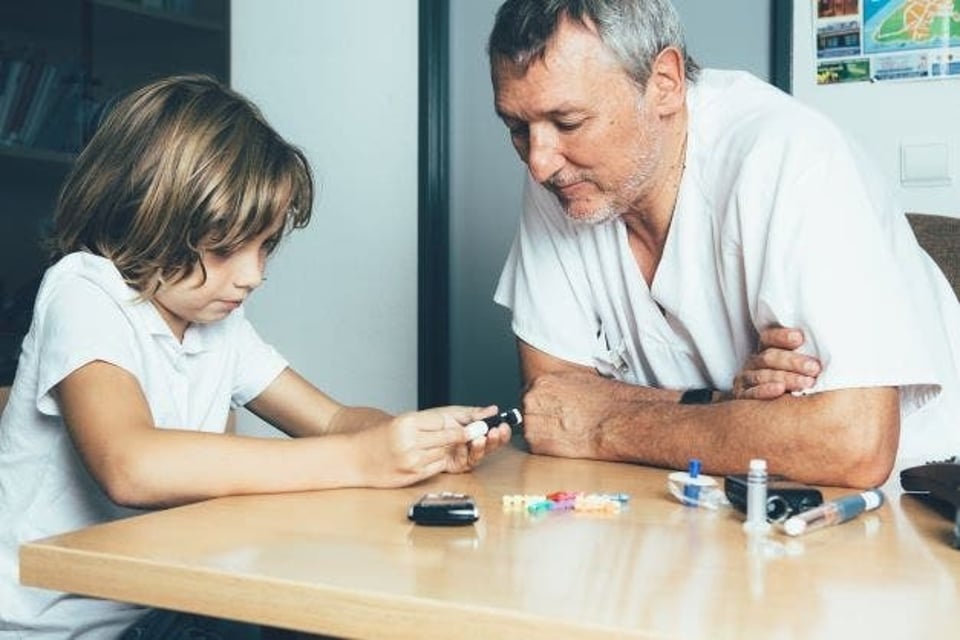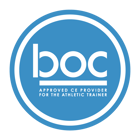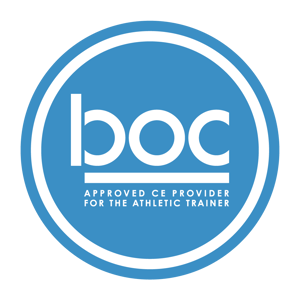Diabetes in Children and Adolescents

Description
Diabetes rates are on the rise among U.S. children and adolescents, as the obesity epidemic continues among our youth. rehab providers can play crucial roles in the fight against diabetes’ negative effects on young people. This course presents current information about iabetes in children and youth. We review the impact of diabetes, examine the epidemiology of childhood obesity and diabetes, review complications and treatment guidelines, and discuss rehab approaches to intervention, focused on patient/family education, healthy eating, and exercise. We also present relevant current literature and discuss how that research may apply to our practices. An assortment of case studies allows us to apply the principles discussed throughout the course, while Therapist Tips and Supplemental Reading suggestions enrich the material. This course provides rehab professionals with an up-to-date appreciation of how our interventions may positively impact children and youth with diabetes in order to increase their daily participation and functional abilities, improve their quality of life, and give them a better long-term health prognosis.



Physicourses is an AOTA Approved Provider of professional development. Course approval ID# 6295. This distance learning-independent course is offered at 0.9 CEUs Intermediate Level, OT Service Delivery, Foundational Knowledge. AOTA does not endorse specific course content, products, or clinical procedures.
Available Course Credits
| Alaska State PT & OT Board | 9.00 | ||
 |
AOTA | 9.00 | |
| Arizona State Board of Physical Therapy | 9.00 | ||
| Arkansas State Board of Physcial Thearpy | 9.00 | ||
 |
BOC | 9.00 | |
| California Physical Therapy Board | 9.00 | ||
| Colorado Division of Professions and Occupations | 9.00 | ||
| Connecticut Department of Public Health | 9.00 | ||
| Delaware Examining Board of Physical Therapists and Athletic Trainers | 9.00 | ||
| District Of Columbia Department of Health | 9.00 | ||
| FPTA | 9.00 | ||
| Georgia State Board of Physical Therapy | 9.00 | ||
| Hawaii Board of Physical Therapy | 9.00 | ||
| Idaho Physical Therapy Licensure Board | 9.00 | ||
| Indiana Physical Therapy Board | 9.00 | ||
| Iowa Board of Physical Therapy and Occupational Therapy | 9.00 | ||
| Kansas State Board of Healing Arts | 9.00 | ||
| Kentucky Board of Physical Therapy | 9.00 | ||
| Louisiana Physical Therapy Board | 9.00 | ||
| Maine Board of Physical Therapy | 9.00 | ||
| Maryland Board of Physical Therapy Examiners | 0.90 | ||
| Massachusetts Board of Allied Health Professionals | 9.00 | ||
| Michigan Board of Physical Therapy | 9.00 | ||
| Mississippi State Board of Physical Therapy | 9.00 | ||
| Missouri Advisory Commission for Physical Therapists | 9.00 | ||
| Montana Board of Physical Therapy Examiners | 9.00 | ||
| Nebraska Department of Health and Human Services | 9.00 | ||
| New Mexico Physical Therapy Board | 9.00 | ||
| New York State Education Department | 9.00 | ||
| North Carolina Board of Physical Therapy Examiners | 9.00 | ||
| North Dakota Board of Physical Therapy | 9.00 | ||
| Office of Professional Regulation, Vermont Secretary of State | 9.00 | ||
| Oklahoma Board of Medical Licensure and Supervision - Physical Therapy | 9.00 | ||
| Oregon Board of Physical Therapy | 9.00 | ||
| Pennsylvania Bureau of Professional and Occupational Affairs - Physical Therapy | 9.00 | ||
| Physical Therapy Governing Board New Hampshire | 9.00 | ||
| South Carolina Board of Physical Therapy | 9.00 | ||
| South Dakota Physical Therapy License Board | 9.00 | ||
| State of Alabama Board of Physical Therapy | 9.00 | ||
| State of Rhode Island Department of Health | 9.00 | ||
| Tennessee Board of Physical Therapy | 9.00 | ||
| Texas Physical Therapy Association | 9.00 | ||
| Utah Physical Therapy Licensing Board | 9.00 | ||
| Virginia Board of Physical Therapy | 9.00 | ||
| Washington State Board of Physical Therapy | 9.00 | ||
| West Virginia Board of Physical Therapy | 9.00 | ||
| Wisconsin Physical Therapy License Board | 9.00 | ||
| Wyoming Board of Physical Therapy | 9.00 |
Course Content
| 623 Diabetes in Children and Adolescents | Module | ||
| Course Evaluation | Module |
Sarah R.Stillings, MA, PT, MPT, CHT
Sarah R. (Sally) Stillings is a PT and Certified Hand Therapist in Texas. She received her physical therapy degree from the University of North Carolina at Chapel Hill. Prior to becoming a therapist, Sally taught university-level writing courses and was assistant editor of The Journal of Craniomandibular Practice. In her extensive career as a PT, she has held a variety of clinical, teaching, administrative, and business roles, including general PT practitioner, upper extremity specialist, clinic manager, hand therapy clinic coordinator, continuing education (CE) instructor, and CE course administrator. She has also served as Executive Director of the Kellermann Foundation, a U.S. nonprofit organization supporting healthcare and community development in Uganda, East Africa. Her work now focuses on creating evidence-based CE materials for rehab professionals. Sally is a lifelong runner who celebrates all those who cover the ground.

623 Diabetes in Children and Adolescents—Course Objectives
After successfully completing this continuing education course, the learner should be able to:
1. Define diabetes mellitus, list its classification types, and identify its diagnostic criteria in
pediatric practice
2. Recall the prevalence of diabetes and of obesity among children and adolescents in the
United States
3. Identify signs, symptoms, and complications associated with pediatric diabetes
4. Identify current standards of medical treatment for these disorders among children
and adolescents
5. Recognize principles and philosophies of diabetes education
6. List important topics in family/patient education for young people with diabetes
7. List the benefits of exercise in children, and recognize the potential risks associated with
exercise for children and adolescents with diabetes
8. Recognize how to choose appropriate, safe exercise interventions for this patient
population
9. Define evidence-based practice and recognize its parameters
10. Recall the “take-away” message for PT/OT practice of each of the three research
articles presented.
11. Using case studies, apply the specific concepts and principles presented in the course
for diabetes care in children and adolescents.
623 Diabetes in Children and Adolescents—Table of Contents
HOUR 1
Course Instructions 2
About the Author, Course Description 3
Course Objectives 4
Table of Contents 5
Introduction 7
Chapter 1: Understanding Pediatric Diabetes 10
Definitions
Classifications 12
Type 1 Diabetes Mellitus
Type 2 Diabetes Mellitus 15
HOUR 2
Prediabetes 16
Monogenic Diabetes 18
Other Types of Pediatric Diabetes 19
Diagnosis
Epidemiology 22
Type 1 Diabetes Incidence and Prevalence
Type 2 Diabetes Incidence and Prevalence 25
Overweight/Obesity in Childhood 28
HOUR 3
Acute Complications of Diabetes 31
Diabetic Ketoacidosis 32
Hyperosmolar Hyperglycemic State 33
Hypoglycemia 34
Chronic Complications of Diabetes 35
Other Associated Conditions 37
Medical Treatment of Pediatric Diabetes 38
Chapter 2: The Role of PT and OT Professionals 41
Age-Appropriate Type-Based Intervention 42
HOUR 4
Patient and Family Education 45
Principles and Philosophy of Diabetes Education 47
Who Is Responsible for Diabetes Education? 48
General Topics in Diabetes Education 49
Supplemental Reading 50
Diabetes Education: Type 1 51
Supplemental Reading 52
Diabetes Education: Type 2 53
Supplemental Reading 56
Healthy Eating and Dietary Management
Supplemental Reading 58
Nutrition Advice for Type 1 Diabetes
HOUR 5
Nutrition Advice for Type 2 Diabetes59
Other Dietary Management Considerations 61
Supplemental Reading 62
Exercise and Physical Activity 63
Benefits of Exercise 64
Risks with Exercise 66
Supplemental Reading 67
Prescribing Exercise 68
Chapter 3: Examining the Evidence 72
Evidence-Based Practice (EBP)
What is EBP?
HOUR 6
Why Is EBP Important? 74
What Is “Best Evidence”? 75
Where Can You Find Articles? 77
Presentation of Articles 78
Eva et al., Self-care and self-management... 79
Wu et al., Cardiovasc. health benefits of exercise... 85
HOUR 7
Wu et al. (cont.) 87
Chetty et al., Exercise mgmt. for young people... 91
Chapter 4: Case Studies 99
HOUR 8
Type 1 Diabetes: Case Study #1 100
Type 2 Diabetes: Case Study #2 103
Case Study Series: Patient/Family Education 107
HOUR 9
Conclusion 115
References 116
Examination 124
Evaluation 133
Customer Cancellation:
Customers may request cancellations of their enrollment or subscription in our digital or live educational services, subject to the terms outlined below. Cancellation requests must be made in writing, either through email or through our designated cancellation process.
Refund Policy:
Refunds will be provided according to the following guidelines: i) For cancellation requests made within 5 days of the initial enrollment or subscription, a full refund will be issued. Refunds will be issued using the same method of payment used for the original transaction, unless otherwise agreed upon in writing.
Provider Cancellation:
In the event Physicourses cancels your course, you will be issued a full refund or transfered to a course of equal or greater value.
Physicourses Conflict of Interest Disclosure Policy for Authors and Staff:
All persons in a position to control the content of any educational activity (authors or staff from Physicourses) are required to disclose to Physicourses any potentially biasing or potential conflict of interests in relationships of a financial, professional, or personal nature.
The intent of this disclosure is not to prevent authors or staff with commercial affiliations from planning an educational activity, or to prevent a Presenter with commercial affiliations from presenting, but rather to inform Physicourses of any potentially biasing relationships so that conflicts are resolved prior to the activity.
It is the policy of Physicourses to ensure balance, independence, objectivity and scientific rigor in all of its continuing education activities. All relevant conflicts of interest identified by the planner, presenter, or as determined by Physicourses will be disclosed to the audience verbally and in writing prior to the start of the presentation.
Definitions for Authors/Staff:
Relevant financial relationships are those relationships in which you benefit by receiving a salary, royalty, intellectual property rights, gift, speaking fee, consulting fee, honoraria, ownership interest (e.g., stocks, stock options, or other ownership interest, excluding diversified mutual funds), or other financial benefit. Financial relationships can also include “contracted research” where the institution gets the grant and manages the funds and you are the principal or named investigator on the grant.
Educational Level: Intermediate
Target Audience: PT, PTA, OT, OTA, ATC
Course Completion Requirements: Passing an online exam with 70% or greater will be required to earn continuing education credit
This course is approved for 0.9 CEUS. 9 contact hours
Physicourses is committed to ensuring accessibility to the most extensive audience possible. If you have any questions or special needs requests, please contact us at info@physicourses.com.